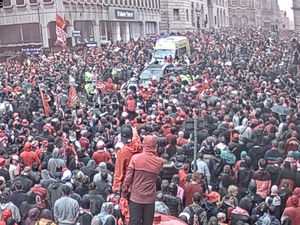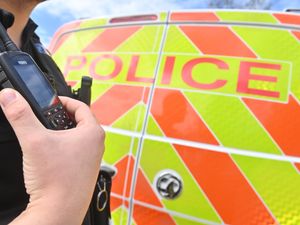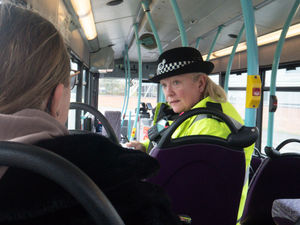How we turned force around after being put into special measures – Chief Constable
Craig Guildford has a spring in his step, as well he might.
Ten months after his force was placed into 'special measures' following a highly critical report by HM Inspectorate, the Chief Constable of West Midlands Police is now regaling a set of statistics, he is now reeling off a set of statistics which show it to be among the best performing in the country.
Overall crime in the area, is down by 12 per cent, he says. The number of cases referred to the Crown Prosecution Service has doubled.
How has he achieved this?
"A lot of it isn't rocket science," he says.
"What most people want from the police is for the phones to be answered promptly, for a good response time, and to know that when we do arrive we will do a decent investigation."
He says one of the most glaring problems he noticed when he took over was the force's complex, fragmented hierarchy.
"I'm a strong believer in local policing, where you have a superintendent responsible for a unit which corresponds with each of the large local authorities.
"I believe that people on the ground are best placed to know what is needed in their own areas," he says. "That's what we've got now, visible policing teams based in their own neighbourhoods."
Another important focus, he says, has been improving the way the force responds to telephone inquiries.
"We receive 70,000 999 calls a month, and on average we answer those within four seconds," he says. "For (non emergency) 101 calls, our performance is now 40 seconds. It used to be half an hour."
This has been, to a large degree, down to the streamlining of operations.
"We used to have four or five separate control centres spread around the area," he says. "Now everything is done at a single location in Aston. As a result we have been able to increase the number of staff slightly, but it was mainly organisation and teamwork that did it."
Response times have also shown considerable progress.
"Our response times are down to 11 minutes 11 seconds, and the 'prompt' response time is down to 40 minutes. That is very good."
Mr Guildford had only been in charge of the force when the withering report was published. As a result, the forced was placed under a strict monitoring regime. He acknowledges that the criticism was largely justified.
"The action should probably have taken place earlier," he says.
"When you apply for any job, you do your research beforehand, and ask people what are the strengths and weaknesses you will need to address."
One of the most glaring criticisms in the inspectorate's report was the way the force dealt with sex offences, both with regards to actual assaults and the risks posed by online offenders.
"That was the quickest thing to be resolved," he says.
"In a lot of ways, we were victims of our own success.
"As a result of research by our officers, we had a lot of intel about paedophiles, which is what you want to have.
"But sometimes you are getting the right people into custody.
"But to prove the case you have to gather the evidence, and that can take a long time.
"That was relatively quick to fix, it is all about getting the resources into the right place."
He says the rapid turnaround in the force's fortunes is a reflection on the hard work of all the officers, staff and volunteers.
He acknowledges there is still much to be done, particularly regarding violent crime among young people.
"When it comes to burglary, robbery, and theft from the person, we're doing really well," says Mr Guildford.
"But one of the crime areas we need to focus on going forward is knife crime involving young people.
"Offences among people aged under 25, involving a knife, have reduced by 17 per cent. But for those involved, every single one is one too many."





